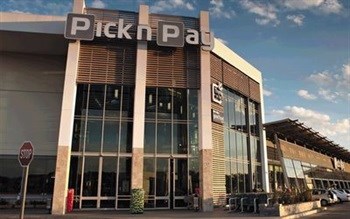After persistent minority shareholder pressure in the past few years, supermarket giant Pick n Pay Stores will collapse its archaic pyramid control structure Pick n Pay Holdings (Pikwik) - but the new set-up ensures voting control remains with the Ackerman family.
On Tuesday, the company said the much-derided structure would be dismantled in August through an exercise that entails Pikwik unbundling its holding in PicknPay Stores to its shareholders. Pikwik holds a 52.8% stake in Pick n Pay Stores.
The move unlocked more than R2bn in value yesterday as Pikwik shares soared.
But the status quo at Pick n Pay Stores remains. The Ackerman family — via Ackerman Investments — will retain voting control of PicknPay Stores after being issued a new class of unlisted B-shares.
The B-shares carry important voting rights but do not participate in dividends or any other distributions.
The Rupert family also controls investment giant Remgro through unlisted B-shares.
The Ackerman family has controlled Pick n Pay Stores for more than 50 years with the Pikwik arrangement in place since 1981.
Ackerman Investments speaks for about 48.5% of Pikwik — which means the family will retain voting control of Pick n Pay Stores with an economic interest of only 26%.
The market response was mixed with Pick n Pay Stores share price closing down 2.14% and Pikwik shares — which have traded at a sizeable discount to the operating company shares — jumping more than 13%.
Market watchers canvassed mostly thought that the development was positive, although there were questions around whether it was not better to execute a straightforward unbundling of Pikwik’s Pick n Pay Stores shares without the complications of a B-share issue to the Ackerman family.
One analyst, who asked not be named, said the development was worthy of a bronze but not a gold medal.
"In terms of governance and unlocking value it would have been much better if they had gone the whole way and simply unbundled Pikwik’s Pick n Pay Stores shares without retaining an artificial control structure.
"Although it is not going to be a case of one shareholder one vote, the Pikwik discount has been erased and there will be a welcome boost in liquidity for Pick n Pay Stores shares."
Shareholder activist Theo Botha was not impressed.
"They are removing a pyramid control structure and replacing it with B-shares.
"Where is the benefit to Pick n Pay Stores shareholders that until 2009 carried the corporate costs of Pikwik?"
But Opportune Investments’ Chris Logan — who has successfully railed against other pyramid structures on the JSE and has been a fierce critic of Pick n Pay Stores’ control structure — believes the dismantling of Pikwik was a good move.
"It will eliminate the discount at which Pikwik trades and boost liquidity of Pick n Pay shares."
Logan said that having the Ackerman family control vesting in the unlisted B shares was not a utopian scenario from a governance standpoint.
"But it is a common occurrence among founding families on the JSE. The fact that Pick n Pay has made a strong recovery, and is performing operationally, makes the B shares a lot more palatable."
Almost every annual general meeting for the last handful of years has seen Pick n Pay Stores directors questioned about dismantling the pyramid structure.
The JSE also discourages artificial control structures, which work against natural market forces.
In recent years, the Ackerman family has vehemently defended the Pikwik structure — but the family did compromise by removing the low voting N-share structure in 1999.
In recent years certain minority shareholders have contended that the Ackerman family’s artificial control should not be a licence for long periods of underperformance.
In the last decade Pick n Pay Stores has markedly lagged its main rivals Shoprite, Spar and Woolworths in terms of profit growth.
As recently as the 2014 annual general meeting Pick n Pay Stores chairman Gareth Ackerman reiterated that family control of Pick n Pay would continue — arguing that the appointment of former Tesco heavyweight Richard Brasher as CEO meant the company had shifted from being "family run" to being "family controlled and professionally run".
At that time he argued that the Ackerman family’s ability to focus on longer-term strategic goals had been referred to as "patient capital".
On Tuesday, Ackerman said the family had for some time been looking to unbundle the pyramid in a way that benefited the company and all shareholders.
He said the new B-share proposals would create a control structure that was not only recognised domestically and internationally, but was also more compliant with modern corporate governance standards.
Ackerman believes that having one listed entity for all shareholders should improve Pick n Pay Stores’ appeal to investors — which could help the company’s long-term growth strategy.




































